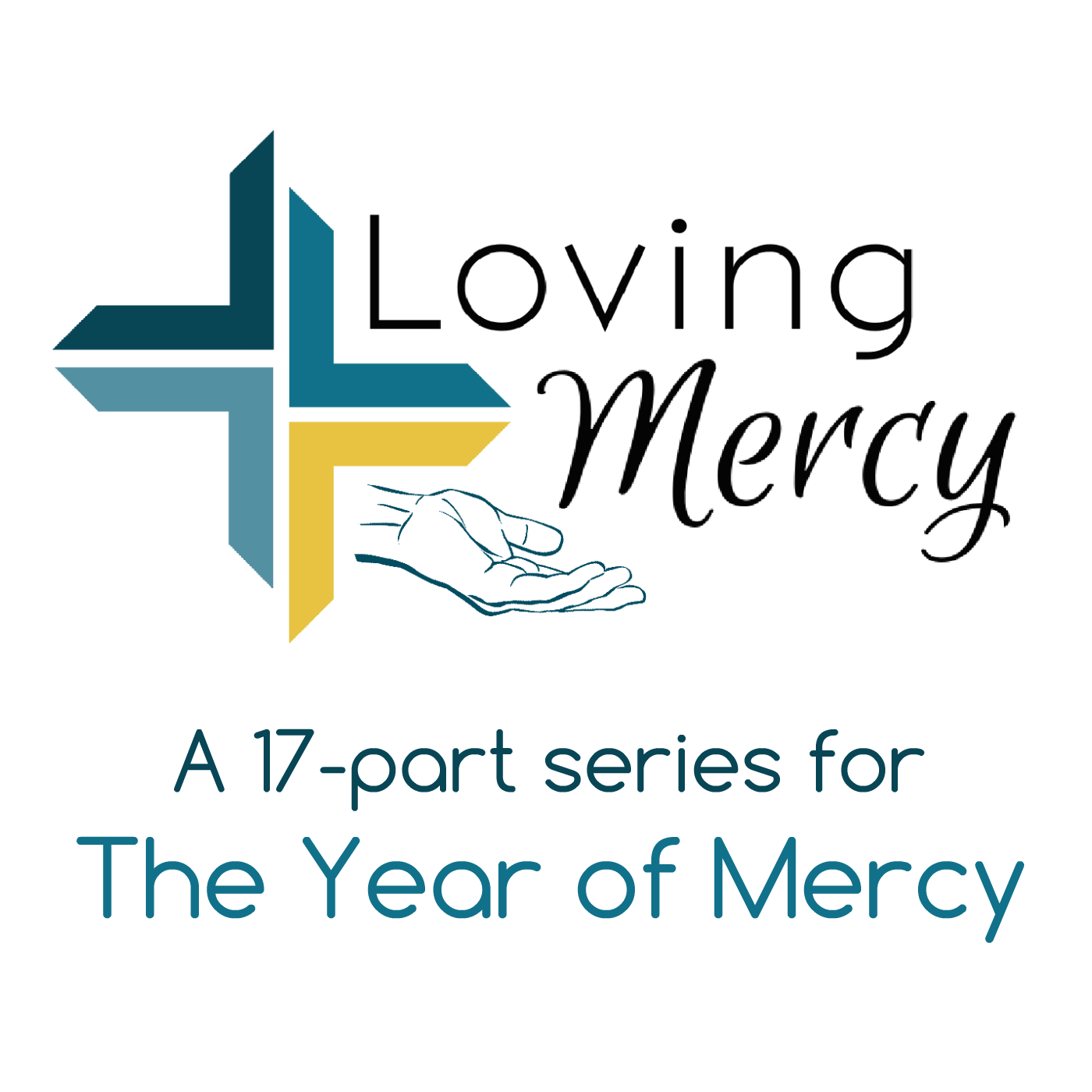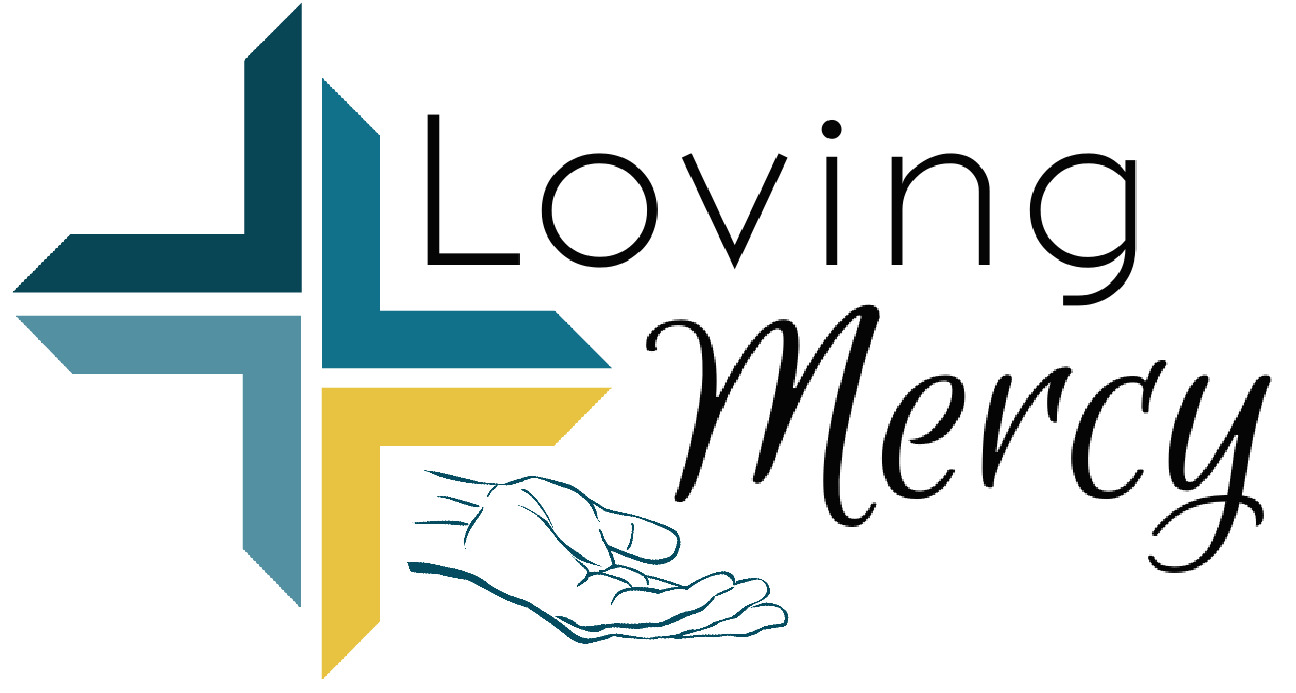 We’ve all heard of the Corporal Works of Mercy, which comes from Matthew 25 (feeding the hungry, giving drink to the thirsty, clothing the naked, welcoming the stranger, visiting the sick and imprisoned, and burying the dead). But how do we actually do these things on a day to day basis? Beginning on 8 December, the Church will celebrate the Year of Mercy, a special jubilee year called by Pope Francis so that we may reflect on the corporal and spiritual works of mercy. “It will be a way to reawaken our conscience, too often grown dull in the face of poverty,” he says. “And let us enter more deeply into the heart of the Gospel where the poor have a special experience of God’s mercy.”
We’ve all heard of the Corporal Works of Mercy, which comes from Matthew 25 (feeding the hungry, giving drink to the thirsty, clothing the naked, welcoming the stranger, visiting the sick and imprisoned, and burying the dead). But how do we actually do these things on a day to day basis? Beginning on 8 December, the Church will celebrate the Year of Mercy, a special jubilee year called by Pope Francis so that we may reflect on the corporal and spiritual works of mercy. “It will be a way to reawaken our conscience, too often grown dull in the face of poverty,” he says. “And let us enter more deeply into the heart of the Gospel where the poor have a special experience of God’s mercy.”
As a response to the pope’s call, God In All Things has developed a 17-part series called Loving Mercy, which can be used by parishes or schools or faith sharing groups to more closely examine how we are living out the works of mercy that are modelled by Christ. The series could be used over the course of 17 weeks, each week addressing a different dimension of mercy. The PDF comes complete with a printable scripture reading handout, reflection questions, and an excerpt from a contemporary writing calling us to mercy.
The following is a reflection on some of the ways I’ve lived out the corporal works of Mercy, starting when I was a Jesuit. An excerpt of this is used in the Loving Mercy series.
 The first corporal work of mercy is feeding the hungry. My very first big mission as a Jesuit was to spend six weeks in an impoverished part of Jamaica working at a Catholic primary school and parish. My fellow Jesuit confreres and I were also encouraged to help the parish sister on her rounds visiting shut-ins. Sister Beverly had worked at the parish for about a dozen years at that point and everyone in town knew her. She was like the Mother Theresa of Kingston. So we took communion to the elderly shut-ins and said hello to others in the area. But one day sister had the children of the parish cook up some rice and fish to take to the homeless downtown. About 10 of us piled into the back of a van filled with boxes of warm food and headed downtown. Before I knew it Sister Beverly had driven over a curb and parked on the sidewalk. A large group of women and men approached the van putting their hands out. We got out, opened up the back doors and began handing out food. These were not the homeless I was used to back in Boston. These were people missing eyes and limbs and feet. They were old and young. They were the garbage of Kingston, either disowned by someone or put on the street by some other circumstance, without medical care or proper food. I handed out the rice and fish, trying to hide my shock beneath my smile. Sister Beverly however seemed to know everyone by name. She treated them with genuine love, as if they were good friends. She didn’t give them what they likely got from others: fear, mistrust, dismissal. She gave them mercy.
The first corporal work of mercy is feeding the hungry. My very first big mission as a Jesuit was to spend six weeks in an impoverished part of Jamaica working at a Catholic primary school and parish. My fellow Jesuit confreres and I were also encouraged to help the parish sister on her rounds visiting shut-ins. Sister Beverly had worked at the parish for about a dozen years at that point and everyone in town knew her. She was like the Mother Theresa of Kingston. So we took communion to the elderly shut-ins and said hello to others in the area. But one day sister had the children of the parish cook up some rice and fish to take to the homeless downtown. About 10 of us piled into the back of a van filled with boxes of warm food and headed downtown. Before I knew it Sister Beverly had driven over a curb and parked on the sidewalk. A large group of women and men approached the van putting their hands out. We got out, opened up the back doors and began handing out food. These were not the homeless I was used to back in Boston. These were people missing eyes and limbs and feet. They were old and young. They were the garbage of Kingston, either disowned by someone or put on the street by some other circumstance, without medical care or proper food. I handed out the rice and fish, trying to hide my shock beneath my smile. Sister Beverly however seemed to know everyone by name. She treated them with genuine love, as if they were good friends. She didn’t give them what they likely got from others: fear, mistrust, dismissal. She gave them mercy.
 That experience changed the way I interact with the homeless. Soon after my wife and I arrived at the Newman Center in Chico, CA where we live now, I noticed a homeless man sitting on the ground outside getting shade under the eve. The temps that week were in the 110s and he had his shirt off trying to keep cool. We had been told by a couple people that if we see homeless people sitting or sleeping on our property that we shouldn’t be afraid of calling the police straight away. So this was going through my head when I saw the man outside, wondering if he was a threat or on drugs or drunk. Should I just call the police? Is this the image I want to give someone of a Catholic center? Are we just to dismiss another human being simply because they’re not part of the student community we primarily serve? I asked the man if he needed anything and he told me he felt he might be having a heat stroke. So I offered him a cup of cold water, for which he was grateful. I gave him dignity. I didn’t shoo him away. The encounter reminded me of the verse from Matthew that says, “whoever gives only a cup of cold water to one of these little ones to drink because he is a disciple—amen, I say to you, he will surely not lose his reward.” Now I wasn’t looking for a reward, but I was considering how the mercy of feeding the hungry in Jamaica prompted me to give drink to the thirsty in Chico.
That experience changed the way I interact with the homeless. Soon after my wife and I arrived at the Newman Center in Chico, CA where we live now, I noticed a homeless man sitting on the ground outside getting shade under the eve. The temps that week were in the 110s and he had his shirt off trying to keep cool. We had been told by a couple people that if we see homeless people sitting or sleeping on our property that we shouldn’t be afraid of calling the police straight away. So this was going through my head when I saw the man outside, wondering if he was a threat or on drugs or drunk. Should I just call the police? Is this the image I want to give someone of a Catholic center? Are we just to dismiss another human being simply because they’re not part of the student community we primarily serve? I asked the man if he needed anything and he told me he felt he might be having a heat stroke. So I offered him a cup of cold water, for which he was grateful. I gave him dignity. I didn’t shoo him away. The encounter reminded me of the verse from Matthew that says, “whoever gives only a cup of cold water to one of these little ones to drink because he is a disciple—amen, I say to you, he will surely not lose his reward.” Now I wasn’t looking for a reward, but I was considering how the mercy of feeding the hungry in Jamaica prompted me to give drink to the thirsty in Chico.
It’s no surprise that the homeless and poor of the streets are the primary recipients of the corporal works of mercy. We are called, after all, to have a preferential option for the poor. “Clothe the naked” was a big ministry of a food pantry I worked at in Syracuse, NY as a Jesuit novice. As winter approached there was a huge demand for hats, gloves, and socks. I remember one homeless man wearing blue disposable medical gloves just to keep warm! People would come so often for hats and gloves that I’d usually just grab a random pair and get them on their way. But one man came back to me with the pair I gave him. “There’s a hole in these.” – “Oh, I’m sorry,” I said. And I got him another pair. “I don’t like this colour,” he said. “Do you have any green ones?”
“How could he be so picky?” I said to a co-worker. “He should be grateful that he has any gloves at all!” My co-worker reminded me that the people we served had dignity, and with that comes the dignity of choice. The homeless are so often withheld that dignity when the soup kitchen serves only one dish or the housing assistance programme chooses housing for a person without consulting them.
 These first three corporal works of mercy—feeding the hungry, giving drink to the thirsty, and clothing the naked—fall under the fourth: welcoming the stranger. Unfortunately, children are taught to always mistrust strangers. And so “the stranger” loses their dignity. We grow up with a default scepticism of the other. But, as Jesus taught, the dignity we all deserve—stranger or not—comes in the way we show hospitality to one another. Are we acting as if the other is a burden, a threat? Or do we treat even the stranger as an honoured guest? I used to work at Walt Disney World and one of their service guidelines was to treat each and every guest like a cherished friend. How do we welcome one another, our family, our friends, and even the strangers we encounter?
These first three corporal works of mercy—feeding the hungry, giving drink to the thirsty, and clothing the naked—fall under the fourth: welcoming the stranger. Unfortunately, children are taught to always mistrust strangers. And so “the stranger” loses their dignity. We grow up with a default scepticism of the other. But, as Jesus taught, the dignity we all deserve—stranger or not—comes in the way we show hospitality to one another. Are we acting as if the other is a burden, a threat? Or do we treat even the stranger as an honoured guest? I used to work at Walt Disney World and one of their service guidelines was to treat each and every guest like a cherished friend. How do we welcome one another, our family, our friends, and even the strangers we encounter?
To learn more about the Loving Mercy series and to view a sample; and to purchase the PDF for your own use or use with a group, visit IgnatianResources.com.
Listen to an audio version of this post…
Music by Kevin MacLeod








